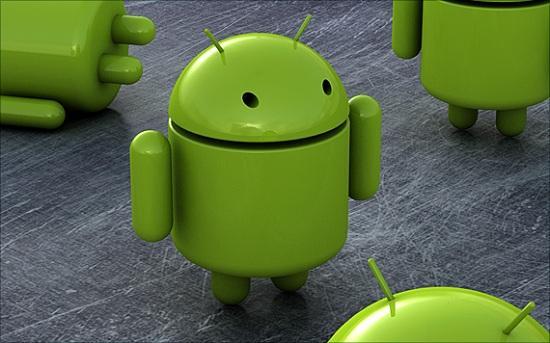
Ah, the smartphone race. It’s one for the memory books, isn’t it? It’s been going for quite some time now, but it really started heating up right around 2007. There are some iPhone fans out there that might ask you, “Where were you when the first iPhone was unveiled?” Ever since then, we’ve been witness to some of the fastest technological advances in recent memory. Our smartphones have managed to get smaller (and bigger again), thinner, faster, smarter, and overall more powerful since that day. It’s been a race that each and every manufacturer out there (except maybe HP) has put their entire lifeblood into, and for good reason. But, right there at the top, rests Apple and Google. The Kings of the Smartphones. With iOS and Android reigning supreme, it’s hard to tell who will win in the end. At least, that’s what it looks like. In truth, Google’s racing in an entirely different event – and they’ve already won.
When Google first announced Android, the mobile OS was welcomed with open arms. The truth is, with iOS on the market, people were eager to see what other companies had coming down the pipe. Other than iOS, the main alternatives were BlackBerry, Windows Mobile and PalmOS. The truth is all of those mobile platforms had stalwart customers, people who praised each individual platform for their strengths, and were quick to denounce the competition for their faults. Of course, that all changed when the majority of them got their hands on the “status symbol” that was the iPhone and the rest is history. We could talk about the downfall of Palm and the subsequent demise of webOS, or the horror stories of RIM’s future, or even how Windows Phone can’t capture more than 2 percent of the market all day, but that’s not the point of this article.
The point, ladies and gentlemen, is to talk about how Google isn’t in the smartphone race at all. And, in truth, that’s something that you all knew already. In fact, it’s been discussed a few times in the past. It’s all true. Google’s presence in the smartphone market is a complete outlier. Why? Because they could probably care less if their mobile OS fails in the future. Or just peters out, as it may eventually do. This is a company that makes oodles and oodles of money every day from the very nature of searching the Internet, whether that’s from your computer, or from your smartphone. And in truth, considering the general dislike of Bing on Android-powered devices (which is probably fueled partly by some inherent need to use Google’s search engine on an Android device), Google is the go-to service. The same goes for any other platform. More than likely, you’ve got Google dialed into your Bookmarks, and when you need to look something up, you head there to find it. Don’t be shy, everyone knows you do it.
And that’s why Google isn’t in the smartphone market, and why they’ve already won. I asked a little while ago if Google knows they’re saturating the market with their devices, and the answer is simple: of course they do. That’s the whole freaking plan. I wondered if Google should actually stop doing this, and put a cap on the number of devices these manufacturers release a year. But why on Earth would they do that? The more devices out there, even with so much separation between some of them (most of them), means more people using their services. Gmail. Google Talk. Google search. It’s all connected, and it all brings Google more money. So it’s no surprise that the company is perfectly fine keeping open the floodgates.
It’s certainly not a bad thing that Google’s in an entirely different race, and that they’ve already won. Because the market doesn’t really see it that way – so while phones continue to be upgraded, due specifically because of this arms race to nowhere, we just keep on getting new, more impressive things to play with. Who can complain about that?